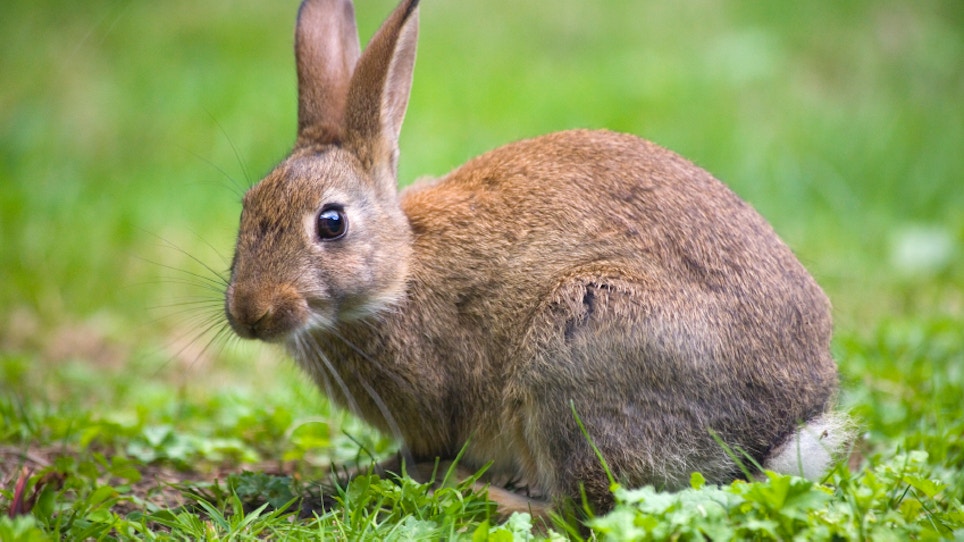Here is a roundup of news items from around the country related to predator and small-game hunting:
Four domestic rabbits in Ohio that died from Rabbit Hemorrhagic Disease Virus 2 in autumn 2018 have wildlife officials on alert out of concern it could spread to other domestic or wild animals.
According to the Southeast Cooperative Wildlife Disease Study group and Ohio State University, four pet rabbits died of the disease. A fifth was put under quarantine. It was the first known instance of RHDV2, which is highly contagious to juvenile and adult rabbits, in the United States. Investigations were conducted by USDA APHIS and the Ohio Department of Agriculture.
Affected animals often die within 36 hours. Early symptoms include fever, lethargy, anorexia and vocalization. Rabbit hemorrhagic disease virus 1, the original variant, was first identified in China in 1984. It quickly spread around the world during the 1980s and 1990s and was first found in Iowa in 2000. Sporadic outbreaks occurred in 2001 in four Midwest states and in pet rabbits in Pennsylvania in late 2018.
The RHDV2 variant emerged in France in wild and captive European rabbits in 2010. The incident in Ohio was isolated. Officials have urged pet owners and veterinarians to report any deaths with signs suggesting RHDV2 in an effort to prevent outbreak to domestic or wild populations.
— Source: Southeast Cooperative Wildlife Disease Study; Prepared by Emily Vincent, Ohio State University and Nicole Nemeth
Wisconsin Men Sentenced For Killing Mountain Lion
Four Wisconsin men have been sentenced for their convictions of illegally hunting a mountain lion in 2017 in Montana and conspiring to obstruct a federal grand jury investigation.
The U.S. Fish and Wildlife Service says Darren Johnson, 52, of Deer Park; David Johnson 31, of Barnes; Robert Peters, 53, of Turtle Lake; and Steven Reindahl, 55, of Turtle Lake were in Mosby, Montana, in January 2017 hunting mountain lions with hounds. Officials said David Johnson shot the mountain lion but it was tagged with Darren Johnson’s tag, and he urged the group to stick with that story then and during the ensuing grand jury investigation. Peters and Reindahl eventually told the truth and the scheme was uncovered.
The four were sentenced in the U.S. District Court Western District of Wisconsin.
— Darren Johnson: Four years probation, $30,000 in fines and loss of privileges to hunt, trap and run dogs.
— David Johnson: Three years probation, $25,000 in fines.
— Peters and Reindahl: Two years probation, $5,000 each in fines, banned from hunting, trapping and running dogs during their probation.
Source: WTMJ-TV
New Mexico Governor Signs Bill Banning Contests
Coyote hunting contests are now banned in New Mexico after animal rights activists got bills pushed through the state legislature and signed into law.
It is now illegal to organize, sponsor or participate in contests in which coyotes are killed. New Mexico Gov. Michelle Lujan Grisham signed the bill. New Mexico joins California and Vermont with bans and Arizona politicians were considering a similar bill during its spring 2019 session.
The New Mexico bill was sponsored by Sens. Mark Moores (R-Albuquerque) and Jeff Steinborn (D-Las Cruces), and by Rep. Matthew McQueen (D-Galisteo) in the House.
“Killing contests are just blood sports. All they are about is killing as many animals as you can, and not about protecting livestock or property,” Sen. Moores said. “No one is trying to restrict landowners’ ability to kill offending coyotes, but celebrating mass killing is just not good wildlife management.”
Rights activists said they have been fighting these contests for more than 20 years and banning them is “sound science.” Opponents of the contests included the Sierra Club, Southwest Environmental Center, Project Coyote and others.
Nevada Contest Penalties Similar To Manslaughter
Nevada legislators saw Senate Bill 487 introduced in spring with wording that would make convictions for hunting in coyote contests a Class D felony with a mandatory prison term of one to four years and significant fine — the same as involuntary manslaughter of a human.
The Sportsman’s Alliance reported the bill came from the Nevada Senate Committee on Natural Resources and would ban competitions where coyotes are killed for prizes or entertainment. Along with the penalties, the bill included wording to criminalize anyone who “promotes” or “engage[s] in the furtherance” of a coyote contest or competition.
Sportsman’s Alliance noted that other crimes that carry a Class D felony punishment in Nevada include involuntary manslaughter and arson. The bill would put coyotes on equal footing with humans in regard to punishment via the judicial system. Sportsman’s Alliance notes that animal rights activists have targeted coyote contests in New Mexico, New York, New Jersey, Montana, Oregon and Wisconsin.
“According to the authors of SB 487, killing someone or burning down a house should carry the same penalty as posting on social media about a coyote competition,” said Bruce Tague, Vice President of Government Affairs for the Sportsmen’s Alliance. “This is utterly ridiculous and unwarranted. Worse yet, this bill makes each coyote killed a separate violation of the new law, meaning a judge could sentence a violator to many years in prison for killing a species the state of Nevada is already struggling to control.”






